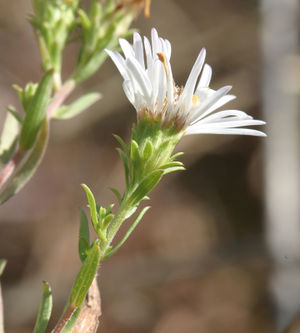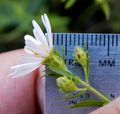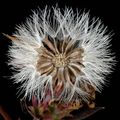Difference between revisions of "Symphyotrichum hallii"
| Line 3: | Line 3: | ||
* Common Names: Hall's aster | * Common Names: Hall's aster | ||
* Synonyms and misapplications: ''Aster chilensis, Aster hallii'' | * Synonyms and misapplications: ''Aster chilensis, Aster hallii'' | ||
| − | * Codon: SYMHAL | + | * Codon: SYMHAL |
| + | {{Taxobox | ||
| + | | name = Achillea millefolium| image = Achillea millefolium.jpg | ||
| + | | image_alt = Achillea millefolium | ||
| + | | image_caption = Achillea millefolium | ||
==Taxonomy== | ==Taxonomy== | ||
{{Taxobox | {{Taxobox | ||
| − | | name = Symphyotrichum hallii | + | | name = ''Symphyotrichum hallii''| image = SYHA RodGilbert flw avg.jpg |
| + | | image_alt = ''Symphyotrichum hallii'' | ||
| + | | image_caption = Photo by Rod Gilbert 2003. Also featured on the Main Page | ||
| regnum = [[Plant]]ae | | regnum = [[Plant]]ae | ||
| − | | subregnum = | + | | subregnum = Viridiplantae |
| − | | phylum = | + | | phylum = Tracheophyta |
| − | | subphylum= | + | | subphylum= Spermatophytina |
| classis = Magnoliopsida | | classis = Magnoliopsida | ||
| subclassis = Asteranae | | subclassis = Asteranae | ||
| ordo = Asterales | | ordo = Asterales | ||
| familia = Asteraceae | | familia = Asteraceae | ||
| − | | genus = | + | | genus = ''Symphyotrichum'' Nees |
| species = '''''Symphyotrichum hallii ''''' A. Gray | | species = '''''Symphyotrichum hallii ''''' A. Gray | ||
| subspecies = | | subspecies = | ||
Revision as of 12:05, 14 March 2021
- Scientific Name: Symphyotrichum hallii
- Family: Asteraceae
- Common Names: Hall's aster
- Synonyms and misapplications: Aster chilensis, Aster hallii
- Codon: SYMHAL
{{Taxobox | name = Achillea millefolium| image = Achillea millefolium.jpg | image_alt = Achillea millefolium | image_caption = Achillea millefolium
Contents
Taxonomy
| Symphyotrichum hallii | |
|---|---|

| |
| Photo by Rod Gilbert 2003. Also featured on the Main Page | |
| Scientific classification | |
| Kingdom: | Plantae |
| Subkingdom: | Viridiplantae |
| Phylum: | Tracheophyta |
| Subphylum: | Spermatophytina |
| Class: | Magnoliopsida |
| Subclass: | Asteranae |
| Order: | Asterales |
| Family: | Asteraceae |
| Genus: | Symphyotrichum Nees |
| Species: | Symphyotrichum hallii A. Gray |
Description
Rhizomatous perennial, one to many radiate heads in wide-branching bracteate inflorescences. Inflorescences generally white. Inflorescence bracts generally much smaller than upper stem leaves, involucres 4-7mm high, phyllaries generally bi-colored, papery below and green above, and spreading or slightly recurved to ascending. Lower leaves petiolate and pubescent, upper leaves sessile and usually pubescent.[1][2]
Distinguished from the common Symphyotrichum subspicatum, S. foliaceum, and S. spathulatum by its strongly graduated involucre and outer involucral bracts that are markedly shorter than the inner ones, obtuse and not leaflike. Symphyotrichum ascendens and S. chilense are distinguished by the bracts of their inflorescences, which if present, are mostly erect, greater than 4 times as long as wide, and markedly acute; their rays are usually blue or pinkish (sometimes white).[3]
Bloom Period
July-October
Distribution
Restricted to seasonally wet grasslands and remnant prairies of the Puget Trough of Western Washington and the Willamette Valley, with outlying populations in the Columbia Gorge and Eastern Washington. Threatened in Washington State.[4] S. hallii is ranked critically imperiled by NatureServe. It is rarely found on the South Salish Prairies, but historical herbaria collections show its range in the state to have spanned from the San Juan Islands to near the Columbia River in prairies.[5]
Habitat
Remnant prairie, seasonally wet grasslands.[2]
Associated species include snowberry (Symphoricarpos albus), colonial bentgrass (Agrostis capillaris), goldenrod (Solidago lepida var. salebrosa), white-top aster (Sericocarpus rigidus), Douglas aster (Symphyotrichum subspicatum), and oxeye daisy (Leucanthemum vulgare).[3]
Uses
Symphyotrichum hallii is an important late-summer nectar source for butterflies.[5]
Photo Gallery
References
- ↑ WTU Herbarium, Burke Museum, & University of Washington. (n.d.). Retrieved from https://biology.burke.washington.edu/herbarium/imagecollection/taxon.php?Taxon=Symphyotrichum%20hallii
- ↑ 2.0 2.1 Hitchcock, C. L., Cronquist, A., Giblin, D., & Legler, B. et al. (2018). Flora of the Pacific Northwest: an illustrated manual. Seattle: University of Washington Press.
- ↑ 3.0 3.1 Rare Plant Field Guide: WA - DNR. Retrieved from https://www.dnr.wa.gov/NHPfieldguide
- ↑ Gilbin, D., Burke Museum, & University of Washington. (n.d.). Symphyotrichum hallii . Retrieved from http://biology.burke.washington.edu/herbarium/waflora/checklist.php?Taxon=Symphyotrichum hallii
- ↑ 5.0 5.1 Bowcutt, F., & Hamman, Sarah. (2016). Vascular plants of the South Sound prairies (First ed.). Olympia, Washington: The Evergreen State College Press.


